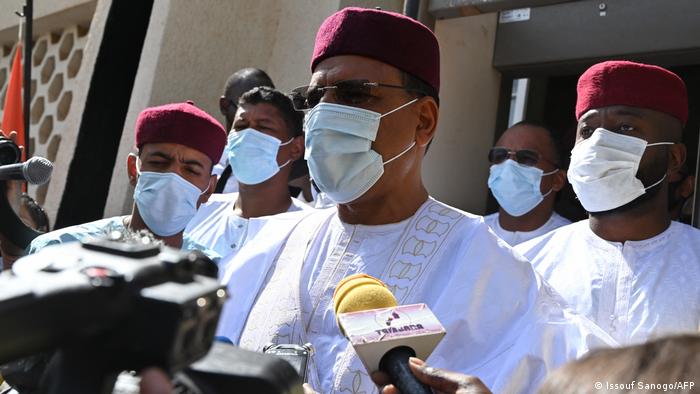Initial results say Mohamed Bazoum beat opposition candidate Mahamane Ousmane in the run-off vote. He is close to outgoing president Mahamadou Issoufou.
Niger edged towards its first-ever democratic transition of power as former interior minister Mohamed Bazoum won the presidential elections with 55.75% of the second-round vote, according to initial results published on Tuesday.
Opposition candidate Mahamane Ousmane picked up 44.25%, the country’s election commission said.
The results will now need to be approved by Niger’s constitutional court.
Shortly before the results were declared, Ousmane’s campaign alleged widespread fraud, including the theft and stuffing of ballot boxes and threats against voters.
It did not provide any evidence for its claims. Authorities have not yet commented on the allegations.
“We demand the immediate suspension of the publication of these results, which do not in any way take into account the expressed will of the Nigerien people for change,” Ousmane’s campaign manager said in a statement.
Outside Ousmane’s campaign headquarters and in other parts of the capital Niamey, his supporters protested by burning tyres. Police fired tear gas to disperse them.
Bazoum’s ties to outgoing head of state
Bazoum, 60, is close to outgoing president Mahamadou Issoufou. He picked up just over 39% of the vote in the first round.
Ousmane, 71, became the country’s first democratically elected president in 1993, only to be toppled in a coup three years later.
He won just under 17% in the first round but gained pledges of support from a coalition of 18 opposition parties in the days before the runoff.
Sunday’s vote was marred by deadly violence when seven members of the National Electoral Commission were killed after their car hit an explosive device.
Niger has seenas many as four coupssince gaining independence from France in 1960
Challenges facing Niger
The world’s poorest nation; according to the UN’s development rankings for 189 countries, is also struggling with jihadist insurgencies that have spilled over from Mali in the west and Nigeria in the southeast.
In January at least 100 people were killed when extremists attacked two villages near the border with Mali.
Thousands of people have been killed and hundreds of thousands displaced despite the presence of thousands of regional and international troops.
Niger is also one of the most important transit countries for African migrants who want to reach the Mediterranean.
In recent years, Europe has put pressure on the Nigerien government to curb people smuggling.





